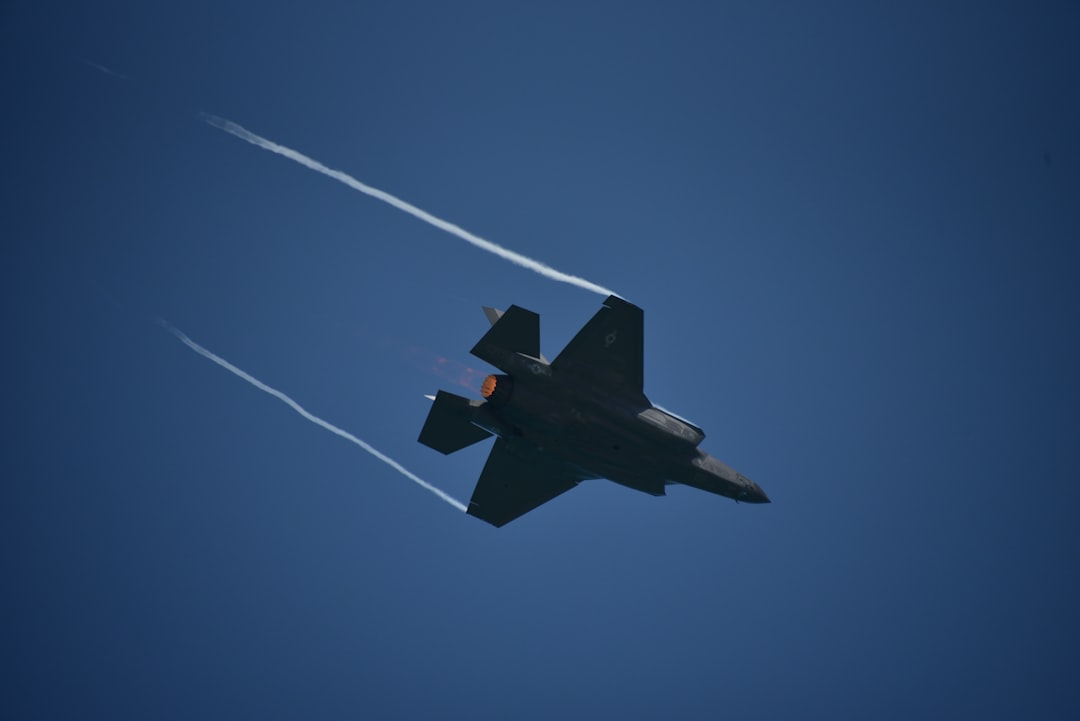Pressuring Israel: 9 reasons Trudeau should suspend arms exports
Will an arms embargo have a positive impact? Vote now

There is growing pressure on Israel’s allies to convince the Netanyahu government to reign-in, or even end its devastating and indiscriminate military bombardment of Gaza sparked by Hamas’ surprise cross-border attack on October 7, 2023.
Peace and human rights groups issued an open letter this week calling on the government to end weapons exports to Israel in protest of its brutal conduct of the war.
Canada supplies military goods to Israel directly, and through providing parts to U.S. and others’ complete weapons systems sold to Israel, such as the F-35 fighter-bombers used in the attacks on Gaza. Project Ploughshares published a recent report on the problem.
Even in the American capital, the Biden Administration is discussing using weaponry sales to Israel as leverage to convince the government of Prime Minister Benjamin Netanyahu to heed long-standing U.S. calls to scale back its military assault in the Gaza Strip, according to three current U.S. officials and one former U.S. official, reported NBC.
The sources said Israeli officials continue to ask the administration for more weapons, including large aerial bombs, ammunition and air defenses.
In the open letter addressed to Foreign Affairs Minister Melanie Joly, several compelling arguments are presented urging Canada to end arms shipments to Israel.
Here is a break down of the key points made in the letter:
1. Legal and Humanitarian Concerns: Civil society organizations express profound concerns about the legal and humanitarian implications of Canada's transfer of weapon systems to Israel. These concerns are particularly heightened following the January 26th provisional ruling by the International Court of Justice (ICJ).
2. Civilian Casualties and Devastation: The letter highlights the significant civilian casualties and widespread devastation in Gaza, with over 26,000 Palestinians killed, including thousands of children, and extensive destruction of homes, schools, hospitals, refugee camps, and critical infrastructure.
3. Risk of Canadian Arms Enabling Israeli Operations: There is substantial concern that Canadian arms exports, including military aerospace components, bombs, missiles, and explosives, could be enabling Israel's military operations in Gaza, which have been deemed amongst the "deadliest and most destructive in recent history."
4. Violation of International Humanitarian Law: Credible human rights monitors, including UN officials, have routinely alleged that Israel has violated international humanitarian and human rights law throughout its operations in Gaza, with UN Secretary-General António Guterres likening the situation to the "collective punishment of the Palestinian people."
5. Obligations under International Law: Canada's obligations under the Export and Import Permits Act and the Arms Trade Treaty require Canadian officials to halt arms transfers and deny further export authorizations to Israel if there is a clear risk that these arms may be used to commit serious violations of international humanitarian law or human rights law.
6. Genocide Allegations: The ICJ's provisional ruling on allegations of violations of Palestinians' rights under the Genocide Convention deems some of South Africa's allegations against Israel as "plausible," further underscoring the need for Canada to halt arms transfers to Israel to prevent complicity in potential war crimes, crimes against humanity, or genocide.
7. Call for Ceasefire and Humanitarian Aid: Canada joined an overwhelming majority of UN member states in calling for a ceasefire in December. Civil society organizations urge Canada to meet its domestic and international obligations by halting arms transfers to Israel and allowing humanitarian aid to reach the millions in need in Gaza.
8. Past Actions and Policy Presumptions: The letter references past actions where Canada has denied arms export permits to countries with a substantial risk of weapon misuse, and it calls for a similar policy to be implemented in regards to Israel, given the grave situation in Gaza.
9. Support for ICJ's Role: While welcoming Canada's support for the ICJ and its rulings in the genocide case brought by South Africa against Israel, the letter emphasizes the inconsistency of supporting the ICJ while continuing to arm those accused of genocide, urging immediate action to halt further arms exports to Israel.
Overall, the open letter presents a comprehensive case for Canada to cease arms shipments to Israel based on legal, humanitarian, and moral grounds, in alignment with international law and principles of justice.
Share with readers about your answer. Paid subscribers may leave a comment.
Elizabeth May and others rejected by Foreign Interference Inquiry
Green Party MP wants to discuss Big Foreign Oil’s interference in Canada
Last week I raised the alarm over the influence of foreign-owned and financed oil companies operating in Canada, and their undue political influence – especially when it comes to attacks on environmentalists.
Researcher Gord Laxer says Big Foreign Oil deserves examining, since it likely has much more impact than China or other states on our democracy.
But the Inquiry’s head, Quebec judge Marie-Josée Hogue, has rejected applications for standing in the investigation by Green MP Elizabeth May, Laxer, and other well-known organizations.
In a message to me this week, Gordon Laxer says, “The Hogue Commission granted standing to the Conservative and NDP parties, but not to Green Party co-leader Elizabeth May. Her failing was wishing to discuss foreign oil corporations’ election meddling. Other applicants rejected on the same grounds include Julia Levin of Environmental Defence, Emily Lowan of Climate Action Network Canada and Terry Moore of Seniors for Climate Action. I was rejected after offering to share my research findings on Big Foreign Oil’s political interference.”
A poll of PeaceQuest readers was answered by 125 people, and over 90% strongly agreed the Foreign Interference Inquiry include foreign-owned and funded oil companies.
I’ll continue to follow this story.
If you enjoyed this article, please consider sharing it with others.





Yes, it would. Canada would no longer function as an active collaborator in Israel's extensive genocide.
Any pressure on the Israeli government to end the bombardment would be good, but I think it will only have minor impact as Israel has time and again chosen to ignore international laws and international pressure.